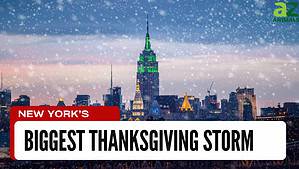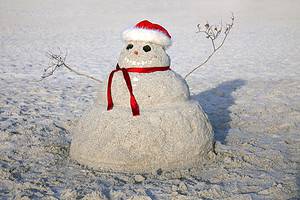Best known for its crystal clear coasts and miles of white sand, the state of Florida is also the hurricane capital of the country. Florida has been hit with 121 hurricanes since scientists began tracking them in 1851. Considering the fact that the U.S. itself has only been hit with just over 300 hurricanes since 1851, Florida clearly is a magnet for these storms. Out of the 121 hurricanes that hit the state, 38 of them were category three or higher. This means that those storms dealt massive damage because of their 111 mph or higher winds.
One of the most recent hurricanes, Ian, had the fifth strongest winds at landfall of any hurricane to hit Florida. It dealt massive damage to Punta Gorda and the surrounding coastal areas before wreaking havoc on the rest of the state. Many families lost their homes and businesses, and towns experienced flooding and damages for weeks after the storm hit.
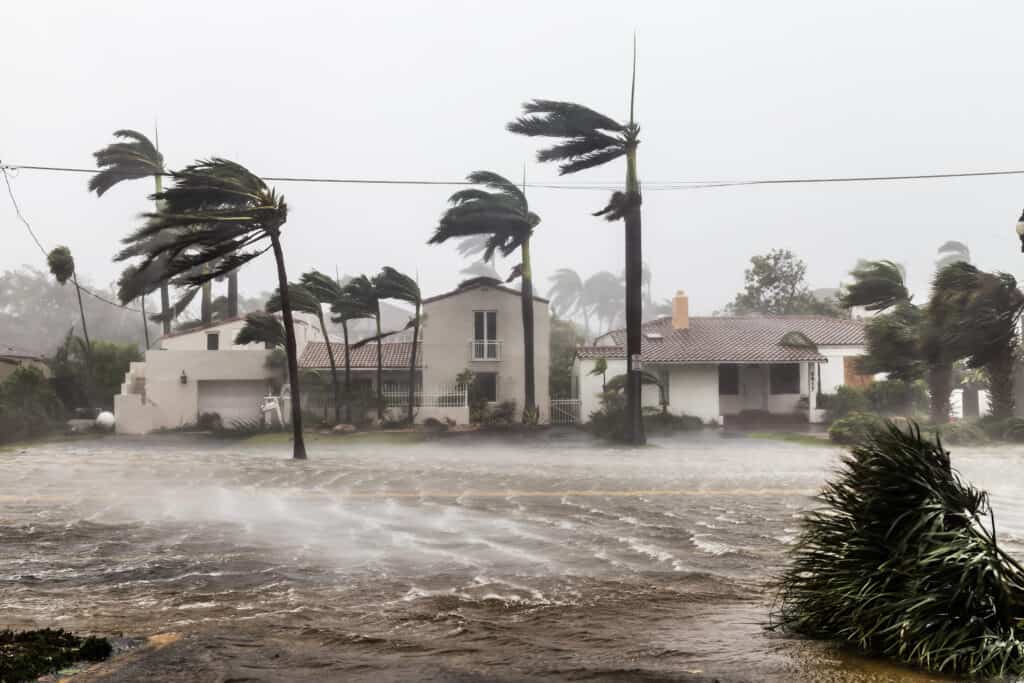
Hurricanes can cause flooding and structure damage that lasts for weeks after the storm hits.
©FotoKina/Shutterstock.com
When Is Hurricane Season in Florida? When Does It Peak?
Hurricane season is six months long, beginning June 1 and extending until November 30. A few storms have occurred before and after the season, during May and December. The majority usually take place during hurricane season, with the peak occurring from mid-August to late October.
Hurricanes that hit the state are categorized by wind speed. A tropical depression is a storm with winds of 38 mph or less. It becomes a tropical storm once the winds hit 39 mph, and is considered a tropical storm until they surpass 73 mph. At 74 mph, the storm officially becomes a hurricane, although anywhere between 74 and 110 mph is just a category one or two.
A major hurricane is any storm with sustained winds of 111 mph or higher. This includes categories three through five. As of today, the highest category for hurricanes is category five. Storms of this category sustain winds of 157 mph or higher. Some scientists have considered the idea of revising the scale to create a category six. This is because they believe there is a potential for more extreme storms to occur in the future.
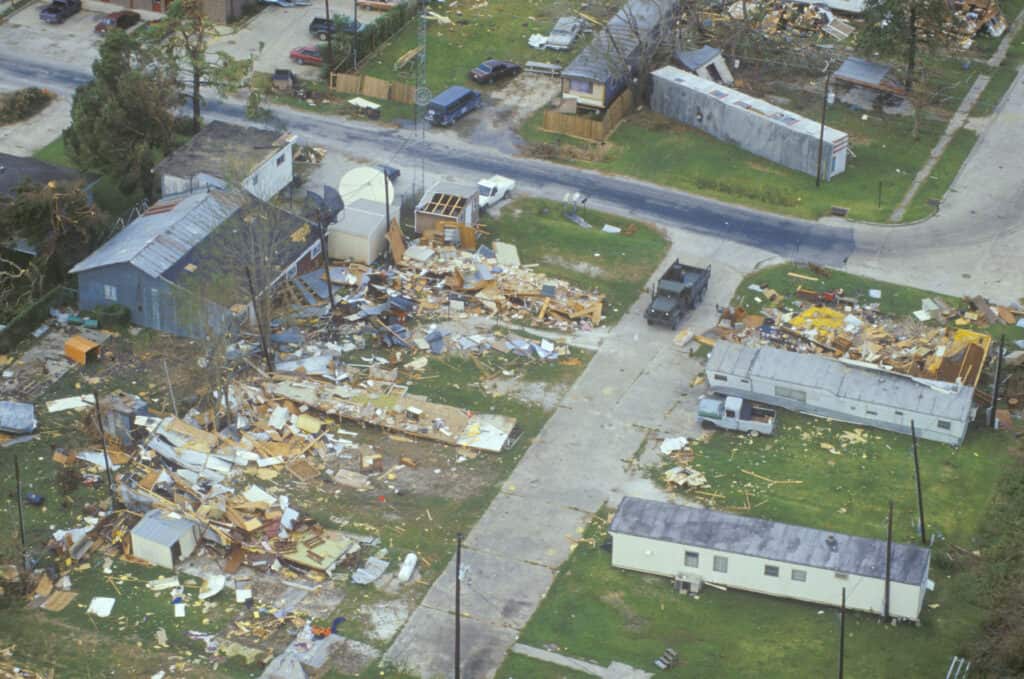
Damages to homes after Hurricane Andrew in 1992.
©Joseph Sohm/Shutterstock.com
How Do Hurricanes Happen?
A hurricane usually starts out as a small weather disturbance, like a tropical wave. The reason why hurricane season occurs during the warmer months is because warm water is key for creating a hurricane. After developing, the weather disturbance must travel over warm, deep water of 80°F or higher and 150 feet or deeper. This is why hurricanes normally form and grow over the ocean rather than on land masses.
While the hurricane forms, it’s sucking hot air and water from the ocean below. Since warm air rises, it creates an area of low pressure underneath the storm. This low-pressure area makes more air rush underneath and rises into the storm, where it cools and forms additional thunderstorms. This is how hurricanes are able to grow so large and so quickly, especially during the warmest months of the year. The longer that the storm stays over water, the greater the chance of it becoming a major hurricane.
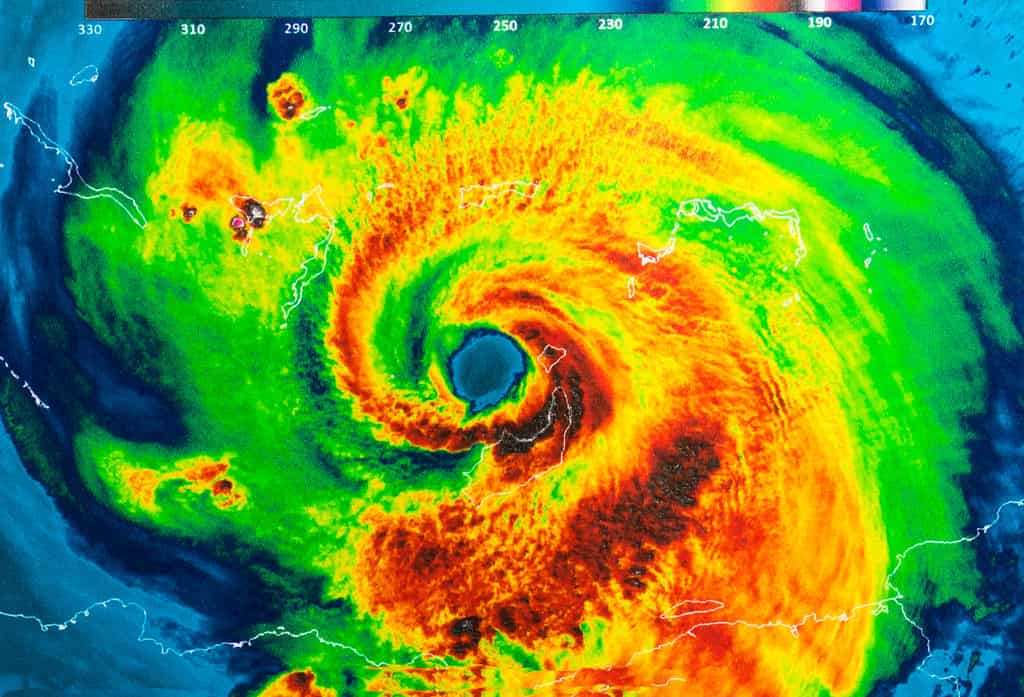
Hurricanes form and grow over warm ocean waters before wreaking havoc on land.
©Trong Nguyen/Shutterstock.com
Preparing for a Hurricane
It’s important to have a plan in place for yourself, your family, and your business before a hurricane hits. Use the state disaster supply kit checklist to begin thinking about what you’ll need. Start by having a conversation with your loved ones about how you will respond in the event of a catastrophic storm. Consider how you will receive emergency notifications, where you will shelter, and how your family will communicate. Make sure to learn your evacuation route in advance, if possible.
Consider your specific household needs. Family members who take medication need to have a plan for transporting it and keeping it cool. It’s important to make sure you have a plan for your pets as well, and have carriers prepared. You should have your family’s important documents stored together, preferably in a waterproof case. If a hurricane is in the forecast, be sure to fill up your gas tank and be ready to evacuate. It’s also good to have extra gas canisters stored at your home if possible.
Most importantly, you’ll need a stash of food and water in case you have to shelter in place. Nonperishable foods will stay good for a long time, and include things like canned food and packaged foods. Beans, canned meats, and canned or dried fruits are filling and are great options for your food storage kit. You should have enough food for your household to eat for at least 7 days. Be sure to prepare water in advance as well. The guidelines for water are one gallon per person per day, and you should prepare for at least 7-10 days of water for your household. Even if the storm doesn’t last for that long, flooding and damage can leave you sheltering in place for days to weeks.
If you have young children, it’s worth having a stash of games and activities as well. There likely will not be power for a few days, so have flashlights, batteries, and things to keep your family occupied. Keep in mind that each household is different, so consider a plan for you and your family based on your needs. Everyone needs food, water, flashlights, and medication, but consider the things that are important for your household, and make sure you and your entire family know the plan in case of an emergency.

Be sure to have a plan for your pets and children in case of a hurricane, as well as food and medical supplies.
©Ekaterina_Kuzmina/Shutterstock.com
The photo featured at the top of this post is © lavizzara/Shutterstock.com
Thank you for reading! Have some feedback for us? Contact the AZ Animals editorial team.



